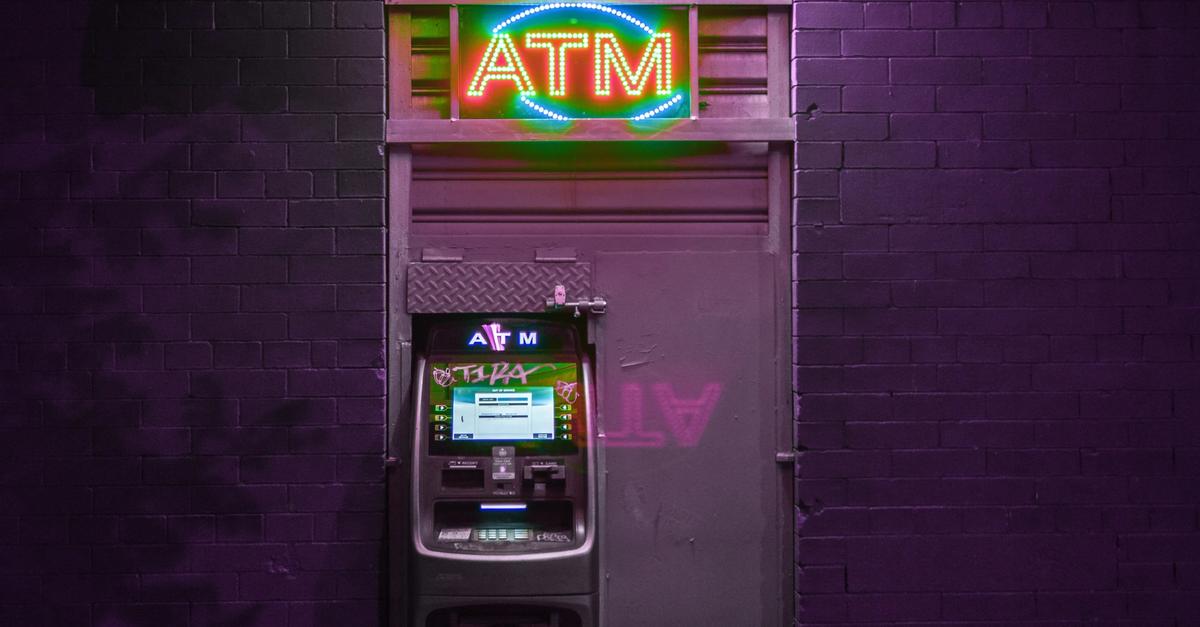Share
Stressed Out by Debt? You’re Not Alone

The Hidden Cost of Using Credit and its Impact on American Society.

Having high interest debt in today’s world can be a very stressful thing to deal with. Whether it’s student loan debt, credit card debt, auto loans, mortgages or the like—people carrying high amounts of debt are generally a lot less happy than those without it. Life happens, and oftentimes, life happens repeatedly, during the worst possible stretch of your adult life. And in all honesty, who’s to say that those of us carrying excessive debt are entirely to blame for our situation? We live in a society where we are constantly being encouraged to spend money with credit cards. They are easy to get and even easier to use and all of this has made us much more prone to emotional spending.
Whether it's via social media or commercial advertising, we are constantly being bombarded and being influenced to make impulsive and near thoughtless purchases at all times. You need not look very far. Websites autosave our credit card information for a quicker checkout, Apple pay allows us to flash our phone in front of a scanner, and Amazon has a one-click checkout option for purchasing convenience. Making a purchase in America has become an effortless process and nobody is complaining. Americans love convenience and if we are willing to give up our privacy by agreeing to use Facebook products, Amazon Echo’s and Google voice assistants then we will surely not relinquish the convenience of electronic payments and credit card usage anytime soon—especially not without receiving anything in return. But at the end of day, everything has an associated opportunity cost, whether we are aware of these hidden costs or not is something else entirely.

Since the beginning of the 21st century our social lives and societal norms have profoundly changed. We are all so much more connected and so much more isolated at the same time. News is reported instantaneously—so much so—that we question whether it’s fake news and take everything with a grain of salt before we accept any news as factual. Electronic credit and credit cards are no different. However, with the emergence of advances in electronic payments and credit cards, the change in our behavior is much less apparent. But the change is very much there, nonetheless. Products purchased online are drop shipped to our homes in a day or if you live in a major metropolitan city just a few hours (thank you Amazon Now!) and all our needs can be met by the click of a button. The psychological impact of this credit card usage is slowly weighing on the fabric of our society and undoubtedly leading to a nation slowly being engulfed by consumerism (even more so now—if this was already not the case prior to the advent of the information age).
The act and comfort of purchasing products online has become ingrained into our societal subconscious and we’ve become none the wiser to it. We love convenience and instant gratification and this "I want it now" mentality has indisputably become rooted into our everyday lives. But who is really benefitting from all these purchases and exchanges of commerce? Are we, the consumer, reaping the benefits from all these reward points and airline miles or are the Visa’s, Mastercard’s and Amex’s of the world the clear winners here? For the fiscally responsible, there is definitely a visible benefit from the convenience and rewards of using credit (as long as you never pay interest you should theoretically receive benefits from using credit via reward points), but for those that aren’t as financially well-off or don’t have funds set aside for a rainy day—credit is a source of emergency funds we sometimes cannot avoid using.

So, how then, are the credit issuers and banks getting ahead with all this leverage and excess of credit availability? Well it’s simple really, the banks are “banking” on life happening and unexpected expenses arising out of nowhere. For every 10 individuals that use credit flawlessly, they only need one consumer to slip up and have to make use of credit for an unexpected medical expense or overbearing car repair bill. Or better yet an unknowing consumer opening a retail store card to get a 20% in store discount, only for that consumer to later pay 29.99% compounded interest for months to come. So, at the end of the day, what these creditors and financial institutions are really doing is betting against the general public (almost like a casino). They entice us with 2% cash back on everything and double the frequent flyer miles (the scope and financial impact of these benefits is typically laughable) in the hopes that we inevitably fail and need to rely on their “generous” credit availability. However, they don’t want this to occur to the point where too many people beginning defaulting or we experience a cataclysmic recession in which the general public must issue another too big to fail bank bailout. The “goldilocks zone” for credit issuers and creditors is at the point of economic impact where some individuals are doing well but not so well that we can all bypass reliance on revolving credit card debt. This is where they reap the most rewards and profit.

So what kind of profits are these banks reaping from issuance of credit cards and increased credit limits you might ask? Well, in 2019, American Express reported net income of $6.8 billion. Moreover, during 2019, Amex added 11.5 million new propriety credit cards accounts to their portfolio. So, let’s say it’s safe to assume that American Express is doing something right in terms of profiting from issuing credit and debt. American Express is just one company and It would be quite foolish to think that this isn’t the case with every other major bank, financial institution and credit card issuer.
Even though American Express may be laughing all the way to the bank, there is still good news! Although the debt relief industry gets a bad reputation due to shady actors and companies solely in it for profits (not very different from Amex or any other creditor) there are some debt relief companies that actually care about helping people escape the vicious minimum payment trap and want to help you take back control from high interest credit card debt. A debt consolidation or credit card consolidation program as it is most commonly referred to as, may actually be able to help you alleviate your debt burdens. Some of these companies will work with you and try to help resolve your debts for less—and the good ones will actually work for free until you see results and savings from their debt relief programs.
Debt relief is a financial service. At the end of the day, you must consider the opportunity cost of enrolling in a debt relief program. For many, the uncertainties and unknowns associated with these options may tempt you away from inquiring about them. However, there are ways to properly do research and tools to aid you in your decision-making process. If you're trying to gauge whether debt relief is a good option for you, feel free to check our article on debt relief and it's consequences. If the debt relief company in question passes all the above guidelines and seems accountable then you should consider using them as a veritable financial life raft. According to debt.org, more than 189 million Americans have credit cards and on average each household with a credit card carries $8,398 in credit card debt.

If you have a significant amount of credit card debt, it’s not something you should be ashamed about. Nobody is perfect. Stress and hardship are a part of daily life for all of us and we are constantly being stretched thin. The stress experienced by most on a day-to-day basis is often enough to give us a hard time. Compound that with tough life circumstances and financial stress can leave any feeling defeated. But you have to remain positive and keep your head up! Even after we weather the storm, the credit card debt we accrued sticks with us and the stress from it impacts us daily. The lingering impact of previous financial qualms we’ve made should not be taken shortly and in order for us truly move past it—we must nip it at the bud. Many of the world’s most successful people have been in a similar situation as you. Before Madonna became what she is today, she used to work at a Dunkin Donuts in Time Square. At one of the lower points in his life, Walt Disney had to mortgage his home in order to keep his company alive. J.K Rowling was a single mom on welfare until the age of 31 and the founder of McDonalds sold paper cups until the age of 52. As the great J.R.R. Tolkien would say: “not all those who wander are lost”. Life has its up and downs. Your story is far from over and you have the power to change your situation for the better.
All you have to do is set your mind to it...